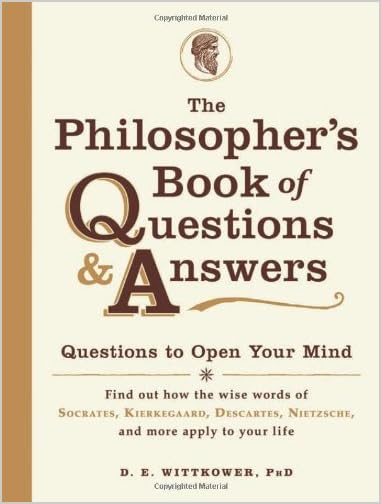You are using an out of date browser. It may not display this or other websites correctly.
You should upgrade or use an alternative browser.
You should upgrade or use an alternative browser.
My book (philosophy) is officially out!
- Thread starter Sue
- Start date

Help Support Slippertalk Orchid Forum:
This site may earn a commission from merchant affiliate
links, including eBay, Amazon, and others.
H
Hera
Guest
Congrats!
- Joined
- Jun 6, 2006
- Messages
- 10,878
- Reaction score
- 326
So awesome! I actually thought you already had a few out!
Sue
evil genius
Well, this is actually my first single-author book. The rest are edited volumes.
Plus I thought "my book is out!" sounded better than "my fifth book is out!"
Plus I thought "my book is out!" sounded better than "my fifth book is out!"
congrats!
Sue
evil genius
Thanks!

$29.99 ($29.99 / Count)
$32.99 ($32.99 / Count)
Spa Gift Basket, Orchid Jasmine Spa Basket bath and body gift basket with Shower Gel, Bath Bomb, Bath Salts, Jojoba Oil & Lip Balm, Birthday Holiday Home Spa Gifts for Women & Men Fathers Mother day
hailida

$32.00 ($31.37 / Fl Oz)
Essential Oil Roll On Blend, Orchid Oil Gift Set, Well-Being, Body Care, Massage, Relaxing, 6 Pack, 0.17oz, Elegant Black
Acqua Gems (DON DU CIEL)

$13.99 ($2.80 / Count)
$17.49 ($3.50 / Count)
Utopia Home - Plant Pots Indoor with Drainage - 7/6.6/6/5.3/4.8 Inches Flower Pots for Indoor Planter - 5 Pack Plastic Planters - Ideal for Stocking Stuffers or Home Christmas Decorations - White
Utopia Deals

$10.22
$10.99
Orchid Basics: Hints, tips & techniques to growing orchids with confidence
Amazon.com

$32.76
$44.00
Understanding Orchids: An Uncomplicated Guide to Growing the World's Most Exotic Plants
Amazon.com

$11.99 ($0.12 / Count)
CHUXAY GARDEN Cypripedioideae-Lady's Slipper Orchids,Lady Slipper Orchids 100 Seeds Tropical Exotic Orchids Rare Small Orchid
color green

$19.43
$22.95
The Orchid Whisperer: Expert Secrets for Growing Beautiful Orchids (-)
Amazon.com

$27.99 ($0.03 / Count)
$39.99 ($0.04 / Count)
Spa Gifts for Women, Gift Set for Women Enchanted Orchid Scent, Home Spa Kit with Bubble Bath, Body Lotion, Bath Bomb, Bath Salt, Spa Gift Baskets for Women, Birthday Gifts for Women
ArioseMonde Products

$32.99 ($11.00 / Count)
$40.73 ($13.58 / Count)
LE TAUCI Plant Pots, 4.1+5.1+6.5 inch, Set of 3, Ceramic Planters with Drainage Hole and Saucer, Indoor Flower Pot with Hole Mesh Pad, Gifts for Mom, Reactive Glaze Beige
THE GOODIES

$16.99 ($5.66 / Count)
$21.99 ($7.33 / Count)
Vanavazon 6 Inch Self Watering Planter Pots for Indoor Plants, 3 Pack African Violet Pots with Wick Rope-Grey
Vanavazon

$12.98
$19.98
Nlife Bring On The Sunshine Graphic Short Sleeves Tees Blouses for Women Tops Sweaters for Women
waltzmart

$74.00 ($43.53 / Fl Oz)
HERBIVORE Orchid Antioxidant Facial Oil – Dewy Hydration, Radiant Glow, Combination to Dry Skin, Anti Aging, Vegan, 50mL / 1.7 oz
HERBIVORE

$45.98 ($45.98 / Count)
$49.89 ($49.89 / Count)
hypehouse Allen + roth 8 in. Orchid Pot with Saucer White
Soko One
Plus I thought "my book is out!" sounded better than "my fifth book is out!"
Is this some kind of Philosophy?
Congrats!
M
Marc
Guest
Well done!
gnathaniel
Lurker
Congratulations! That must feel pretty damn good. Nietzsche is one of my favorite philosophers, reading some of his works right after taking a Chinese religions class in UG kind of, well, blew my mind...
SlipperFan
Addicted
Congrats. It looks interesting.
Nietzsche is one of my favorite philosophers, reading some of his works...blew my mind...
His philosophy blew his mind too. I prefer Socrates. He seems to have thought of everything, and asked all the deep questions. Every philosopher since has merely been refining his ideas. Of course, Plato might have been the real brain and Socrates the vehicle for the dialog.
Sue, I like format of your book in that it is asking the questions before suggesting answers. I think its questions which are important, not the arguments for the answers we would favor (for often no good reason) over others.
Sue
evil genius
Thanks again, everybody!
And, yeah, Tyrone, I think that's really important for exactly the reason you give—and for other reasons as well. Here, this is from my introduction to the book:
------
The questions I ask will sometimes be ambiguous. They will sometimes be frustrating, or leading. Some will have easy answers that are hard to explain, where some will be difficult to even get a grasp on. This is all on purpose. This isn’t a class—there’s not supposed to be a right answer that you’re trying to get—and philosophically valuable questions can be valuable because of what you have to go through to get them rather than because the answer is itself valuable. Keep in mind that in writing these questions, I am not always playing nice, or even playing fair. I am giving you a challenge and a direction for thought and discovery.
The “answers” I provide here are often not answers at all. I think that’s appropriate: these issues wouldn’t be philosophical issues at all if there were answers, especially answers that would fit into a single page (or a whole book). The perspectives included are not necessarily chosen because I think they are right, or because I think you’ll find them convincing, although that is certainly sometimes the case. But they are chosen primarily because they’re significant, plausible, and challenging—in short, worth working with and working through.
And, yeah, Tyrone, I think that's really important for exactly the reason you give—and for other reasons as well. Here, this is from my introduction to the book:
------
The questions I ask will sometimes be ambiguous. They will sometimes be frustrating, or leading. Some will have easy answers that are hard to explain, where some will be difficult to even get a grasp on. This is all on purpose. This isn’t a class—there’s not supposed to be a right answer that you’re trying to get—and philosophically valuable questions can be valuable because of what you have to go through to get them rather than because the answer is itself valuable. Keep in mind that in writing these questions, I am not always playing nice, or even playing fair. I am giving you a challenge and a direction for thought and discovery.
The “answers” I provide here are often not answers at all. I think that’s appropriate: these issues wouldn’t be philosophical issues at all if there were answers, especially answers that would fit into a single page (or a whole book). The perspectives included are not necessarily chosen because I think they are right, or because I think you’ll find them convincing, although that is certainly sometimes the case. But they are chosen primarily because they’re significant, plausible, and challenging—in short, worth working with and working through.
Sue
evil genius
Oh, and by the way, I also set up a Facebook page:
https://www.facebook.com/ThePhilosophersBookOfQuestionsAndAnswers
I'm hoping the page will be kind of a virtual philosophical discussion group, where readers can talk to one another (and with me) about the questions and topics in the book—and about others, not in the book!
https://www.facebook.com/ThePhilosophersBookOfQuestionsAndAnswers
I'm hoping the page will be kind of a virtual philosophical discussion group, where readers can talk to one another (and with me) about the questions and topics in the book—and about others, not in the book!
Similar threads
- Replies
- 13
- Views
- 1K
- Replies
- 1
- Views
- 568































